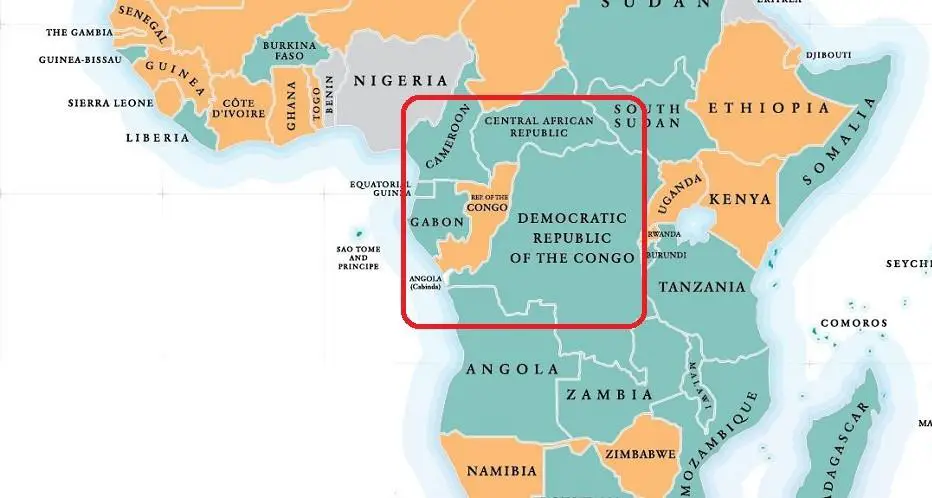Intra-African trade is expected to grow by 52 per cent by 2022 once the Africa Continental Free Trade Agreement (AfCFTA) comes into force in all the African countries.
The AfCFTA is expected to see the removal of tariffs on 90 per cent of goods.
And with this, countries which have not been big players on the continental stage will gain some advantage. Some of these countries are in Central Africa which includes Cameroon, Central African Republic, Chad, Congo, Democratic Republic of Congo, Equatorial Guinea and Gabon.
Increasing economic growth in Central Africa
According to a report by the African Development Bank (AfDB), GDP growth rate in Central Africa accelerated slightly to hit 2.2 per cent from 1.1 per cent in 2017.
However, this remained below the African average of 3.5 per cent.
In 2018, the Central African countries’ growth was driven primarily by the rebound in raw material prices, principally oil.
Real GDP is projected to grow by 3.6 per cent in 2019 and 3.5 per cent in 2020 if Central Africa takes advantage of global economic growth, rising oil prices, macroeconomic reforms and natural resources.
Challenges to Central Africa’s growth
The Central African region faces several challenges among them the security situation; a possible economic downturn linked to a fall in oil prices and the need for economic diversification, improvements to the business climate and governance, and the development of human capital.
The report by AfDB says that in general, Central Africa remains one of the continent’s least integrated regions due mostly to an infrastructural deficit, tariff and nontariff barriers, low economic diversification and weak human capacity.
After the election, there was speculation that the DRC was mulling joining the EAC but no official stand has been communicated regarding this.
Volatile security and political instability
Several multifaceted conflicts for the control of natural resources or involving armed gangs characterize a volatile security situation and political instability.
Central Africa’s fragility is caused by the lack of good governance and structures to guide the exploitation of resources equitably.
These conflicts have been exacerbated by countries’ inability to tackle insecurity and reconstruction, high poverty and governance deficit, according to the AfDB report.
The Central African Republic, Chad and the Democratic Republic of Congo are the three countries considered the most fragile in Central Africa.
The four other countries may be seen as more resilient, though they have pockets of fragility.
Establishing a Central Africa common market
Effective regional integration would increase business and investment flows and stimulate the development of national markets.
This would help mitigate institutional and infrastructural deficiencies and spark structural transformation that would encourage fair and sustainable development and reduce fragility.
To boost this structural transformation through regional integration, Central Africa should develop human capital, add value through infrastructure, improve commercial potential, promote an investment climate for private sector development, and establish a common market.
Central Africa is having difficulty prospering despite the legislation and various treaties and institutions established to govern regional integration.
Implementation failures by member states, exogenous shocks, internal conflicts, natural resource dependence, poor economic diversification and security issues continue to be obstacles.
Yet, regional integration is clearly a path to the structural transformation that, in turn, should reduce factors of fragility in the region, notes the report.
Integrating Central Africa for economic growth
The report notes that fragility is closely linked to the poor governance of the region’s natural resources, recurrent security issues and political instability.
It adds that strengthening the resilience of the countries in the region is essential to achieving inclusive growth.
The report recommends accelerating economic diversification of member states to reduce fragility due to exogenous shocks.
It also proposes developing a financial system to promote inclusive finance and entrepreneurship, especially among young adults and women.
It also calls for the re-establishment of the rule of law and institutional order in fragile states.
The report also recommends strengthening the connectivity of infrastructure for electricity, transportation and information and communication technology.
Combining strengths among countries to develop human capital and enhance countries’ comparative advantages is highlighted as one of the ways to help increase growth.
The report also recommends formulating an effective strategy to implement and monitor regional integration projects and accelerating the conditions for the creation of the future continental free trade area.
With the ratification of the AfCFTA, the UN Economic Commission for Africa (ECA) says the trade agreement will be the world’s largest free trade zone by the number of countries if ratified by all the 55 African countries.
The Central Africa Region can reap the benefits from the trade agreement which could see its economy surpass the projections.
